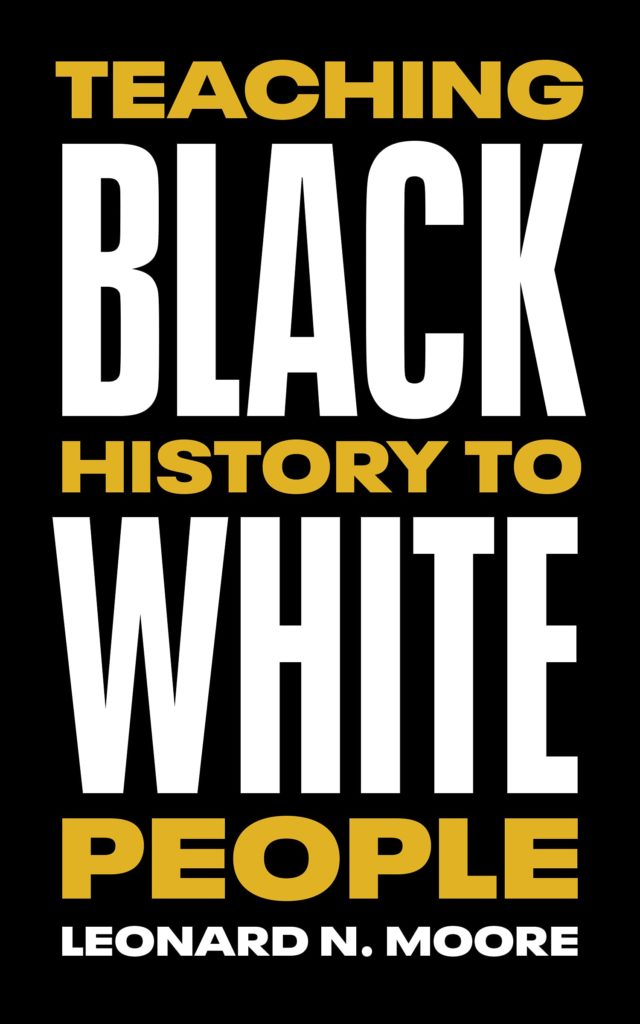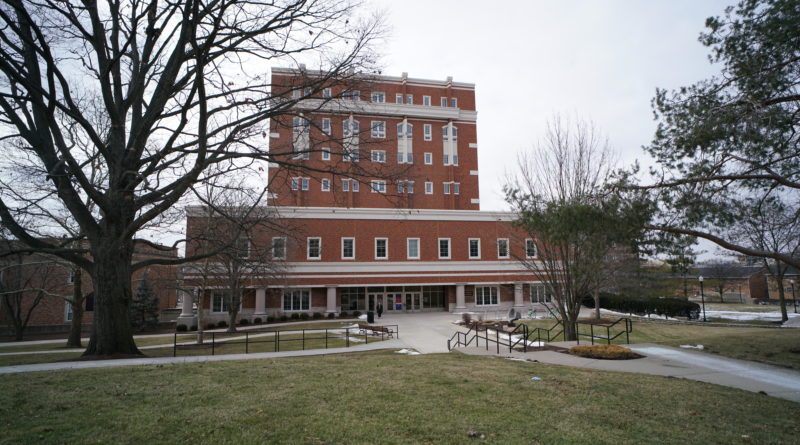OPINION: America doesn’t want to teach Black history. Why are white people okay with that?
Photo of Roesch Library courtesy of Zach Merz.
Lucy Waskiewicz | Contributing Writer
The cover catches your eye first. “BLACK” and “WHITE”, emblazoned in massive white text against a black background- a double contrast. Then you look closer at the full title- Teaching Black History to White People- and author Dr. Leonard N. Moore has your attention before you’ve even flipped a page.
I am white. And like any deep dive into Black history by a white person, reading parts of Teaching Black History to White People was shocking. But one of the most jarring realizations I had afterward went beyond Dr. Moore’s descriptions of the lynching of William Brown or his own extensive preparations for driving distances as a Black man. It was a question I was left with: why didn’t I know any of this before?
There’s an anecdote in which Americans confess that the extent of Black history they learned in school was of George Washington Carver, who “did something with a peanut.” It could be amusing if it was a reference to some primitive age of whitewashed schoolhouses and equally whitewashed history classes.
But I am a twenty-year-old college student in 2022. Should you ask me which Black historical figures I learned about throughout my formal education, Carver would be in the top three. I’d be pressed to think of more than seven. Add a few recurring classes about the slave trade and Civil War, and you have covered my education in Black history.
Here are a few quick facts: Teaching Black history is not federally required in the U.S. A study from 2015 found that 8-9% (one or two lessons) of class time is spent on Black history in American history classes. An AP American History textbook still used by high schoolers (including me, in 2019) includes African slaves on a map of “immigrants” to the U.S.
Why aren’t white Americans angrier about this?
People riot (literally) if they believe the government is withholding information about infant-consuming Democrats or 5G spreading coronavirus. Yet every single day American schools withhold Black history from the education of their students, and it’s met with little more than sheepish silence.

As Americans, we deserve to be taught an accurate account of American history. As citizens of a country built by African and African American slave labor, it’s a necessity. But as members of the race that has enslaved, raped, lynched, segregated, criminalized, and discriminated against Black human beings since 1619, we owe it to Black Americans, living and dead, to learn their history.
A recent subject of interest in Black history education is Critical Race Theory (CRT). Put simply, CRT is both a concept and movement that stands on the principles that race is a social construct and racism is not the result of individual prejudice but is inherent in our policies and legal systems. It’s one of the most publicized opportunities to rectify the teaching of Black history in American schools in recent history.
And yet.
And yet white Americans are packing school board meetings to the brim to protest the inclusion of CRT in their children’s curriculum.
And yet as I write these words, nine hours ago the Lieutenant Governor of Texas vowed to extend the state’s ban on teaching CRT at the K-12 level to include state universities.
And yet the phrase “Critical Race Theory” has been tossed about so carelessly, so furiously, so inaccurately by white Americans in the last two years that its true intentions are blurred beyond recognition and we realize that this entire time the backlash hasn’t been against this concept, but against the realization that teaching Black history in American schools will expose our nation’s history as one thickly intertwined with racism and hatred and fear perpetuated by white Americans.
The resistance white America shows when faced with the fact that the history of a people they have beaten down for hundreds of years will not paint their past or present in a favorable light is shocking.
I’m angry. I’m angry that most of my knowledge on Black history comes from a book that happened to catch my eye in Roesch Library two weeks ago. I’m angry that there is an entire side to American history that has been actively withheld from me. And I’m angry that Black Americans, that Black students, students like me, have been robbed of their role in history by a country that continues to call itself the greatest in the world.
For more opinion news like Flyer News on Facebook and follow us on Twitter (@FlyerNews & @FlyerNewsSports) and Instagram (@flyernews).

